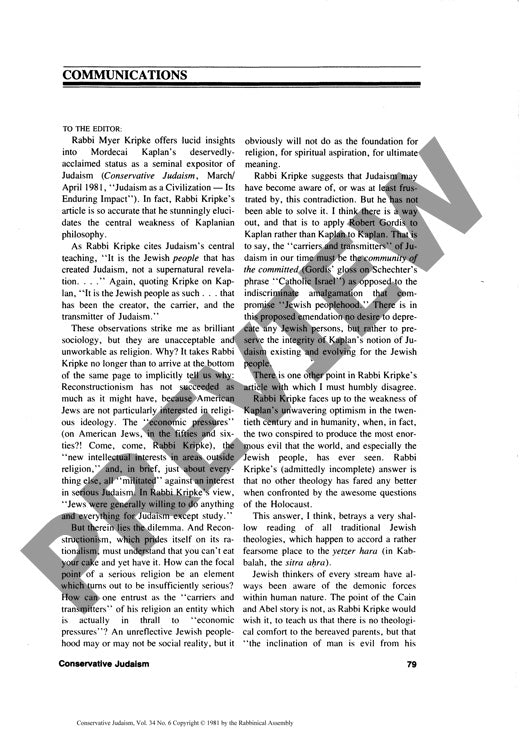Communications
Couldn't load pickup availability
This collection of scholarly communications examines fundamental tensions within contemporary Jewish theological and philosophical discourse, particularly focusing on Mordecai Kaplan's Reconstructionist philosophy and Conservative Judaism's eschatological framework. The methodology consists of critical theological analysis through correspondence and scholarly debate published in Conservative Judaism journal. The primary findings reveal significant critiques of Kaplan's naturalistic approach to Judaism, which positions the Jewish people as creators and transmitters of Jewish religion rather than recipients of supernatural revelation. Contributors argue this framework proves insufficient for authentic religious foundation, as it relies upon a Jewish populace demonstrably uninterested in serious religious study or commitment. The analysis further challenges Kaplan's optimistic anthropology, particularly given twentieth-century historical realities including the Holocaust, contrasting this with traditional Jewish recognition of the yetzer hara (evil inclination). Additionally, the communications address Conservative Judaism's need for renewed eschatology, arguing that survival-based religious motivation remains inadequately ultimate. The key conclusion emphasizes that authentic Jewish religious vitality requires kabbalat ol malkhut shamayim (acceptance of divine sovereignty) as its primary focus, with conscious service to God rather than mere Jewish survival or cultural preservation constituting the ultimate religious goal. These exchanges illuminate ongoing debates regarding naturalistic versus theocentric approaches to contemporary Jewish religious life.

More Information
-
Physical Description
-
Publication Information
Published 1981
ISBN
-
Publication Credits

